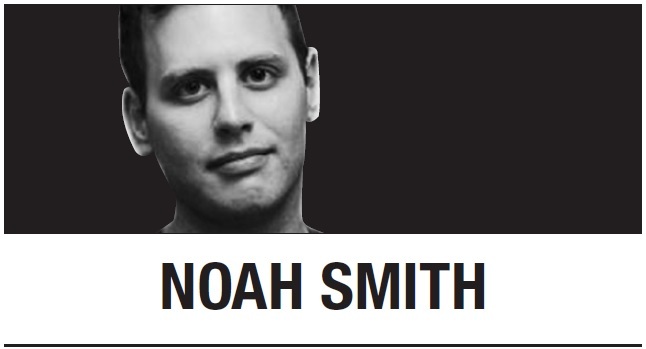
As President Joe Biden and the Republicans haggle over the definition of infrastructure, some in the latter camp have raised the possibility of using public-private partnerships to pay for new projects. The government would get new roads and bridges funded by private companies, which would then collect a share of the “user fees” charged to people who drive on them. But the proliferation of toll roads is already doing damage to the national freeway system.
You can question whether it was a good idea to base transportation around automobiles, but the sheer scale of the achievement, and the economic activity it generated, is not in doubt. Yet it’s only one piece of our vast network of highways.
Americans have gotten used to thinking of those highways as something you can enter and exit at will. The romance of the open road has been immortalized in novels like Jack Kerouac’s “On the Road.” As a young person, I lived that reality, road-tripping with my friends across Texas and the Southwest, stopping off at roadside towns, never even thinking about who built the road under my wheels.
Mostly, this is still how things are; as of the mid-2010s, only about 8,000 kilometers of US roads were toll roads, compared to 153,000 kilometers of highway in total. But toll roads are proliferating fast, growing at double-digit rates since the turn of the century while public freeways have increased far more slowly.
There are some good reasons for toll roads; the main one being to relieve congestion by raising the cost of driving individual cars.
But across much of America’s sprawling territory, where roads are less congested, tolls are mainly for another purpose: To save the government money. So-called public-private partnerships allow companies to contribute to the financing of highway construction and maintenance, in exchange for being paid back from tolls. With state governments strapped for cash, and the federal government increasingly unwilling to fund infrastructure due to bitter partisan political battles, so-called P3s have become more financially attractive. Libertarians find P3s attractive because they represent a diminution of government’s role.
But there are some serious drawbacks to this trend. First of all, private companies don’t have the same incentives that the government does. The latter generally wants to facilitate the growth of the regional economy, while the former simply want to extract as much profit from the highway as they can. That affects which projects get funded.
A private company that builds a road won’t capture the full value of the economic activity that gets generated by the road’s existence. Because of network effects, each road that gets built makes all the other roads more economically productive; an isolated highway is less valuable than a highway that connects to lots of other highways. But since each private company only builds one piece of the network instead of the whole thing, it will tend to neglect this extra value. Thus, relying on P3s will tend to mean too few roads.
On top of that, there is the hassle cost of using toll roads. Electronic toll collection has made using this somewhat less onerous, but you still have to slow down to drive through the toll stations. Also, with freeways, you never have to think very hard about when to get on and off the road; with tolls, every route choice becomes an economic calculation. For low-income people, that just adds stress in a country where the poor are already overwhelmed with a million hassles.
Express lanes come with their own drawbacks. They cause visible inequality on the road, with lower-income people relegated to traffic jams while the toll-tag elite whiz by unimpeded. And because there are times when not many people use the express lane, they can represent an inefficient use of space. Even to the people with the money to use the lanes, they’re very confining; you have to stay in the lane for a long stretch of travel time.
Finally, toll roads could concentrate economic activity in big cities even more than it already is. Making it costly for people to stop on the side of the road can choke the economic lifeblood out of small roadside businesses and towns, depriving rural regions of revenue. Toll roads could thus exacerbate the regional inequality that Americans have become increasingly worried about in recent years.
So the US should think twice before killing off the Great American Road. Yes, it can be politically difficult to fund highway maintenance out of taxes. But once people experience the alternative -- a driving experience full of constant hassles and restrictions and fees -- they might start to remember the value of government.
Noah Smith
Noah Smith is a Bloomberg Opinion columnist. -- Ed.
(Bloomberg)








